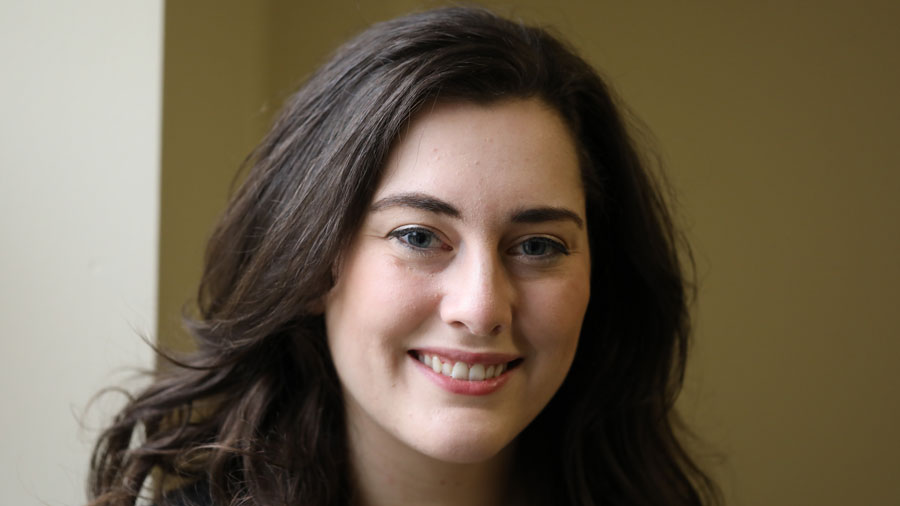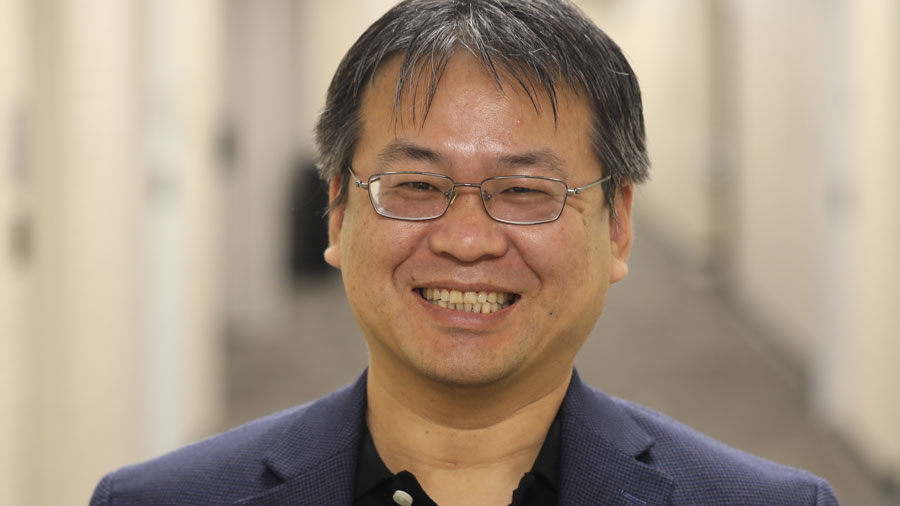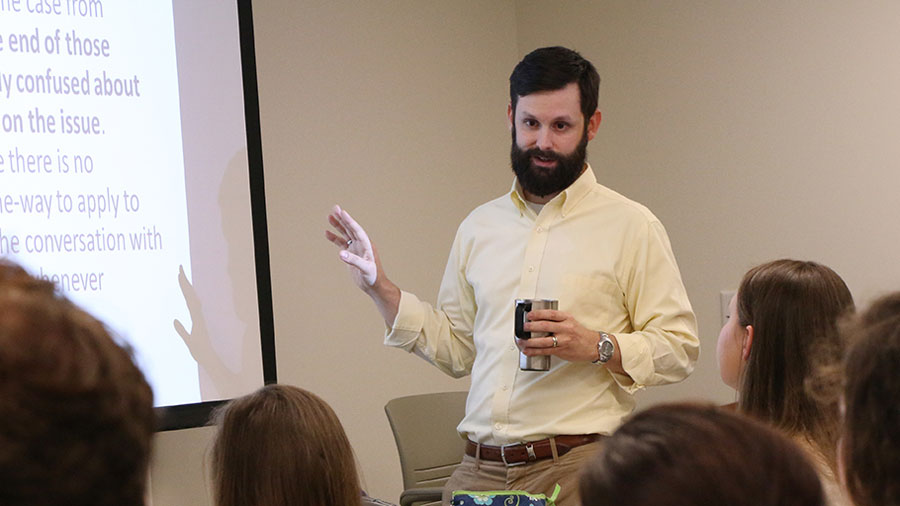Power in Numbers
Data studies grounded in an ethical framework and powered by motivation to serve others
Data sciences may well be more collaborative than any other discipline. A diverse field by its nature — involving machine learning, artificial intelligence, statistical sciences, digital communication and more — data sciences is a natural fit to advance research not only within its own core divisions but all disciplines. While technological advances often get the headlines, at its core, data sciences is about solving real problems that help people. For data scientists at Baylor, a heart for people motivates long hours studying data sets for clues that unlock answers.
Across campus, faculty in areas ranging from computer science to education to statistics utilize data science methods and collaborate with others to solve problems — and to do so within an ethical framework that makes the world better. They share their insights on how data sciences at Baylor can address human problems.
Mary Lauren Benton, B.S. ’15, Ph.D., serves as assistant professor of computer science. A Baylor graduate, she returned to her alma mater in 2020 after earning a Ph.D. in bioinformatics from Vanderbilt University.
Henry Han, Ph.D., came to Baylor from Fordham University in 2021 to serve as the inaugural McCollum Family Chair in Data Sciences. An internationally recognized researcher, his work impacts fields as varied as genetics, health, finance, stock trading and more.
Grant Morgan, Ph.D., is a data scientist with an educational application. He serves as associate dean for research and professor of educational psychology in Baylor’s School of Education. There, he focuses on measuring educational data, including the study of student testing.
How would you describe your main research focus?
Morgan: I am formally trained as a psychometrician, and that means that I study the way we measure and explore relationships between variables that we believe exist but can’t directly measure. Education, of course, is no stranger to testing. Any time we think about tests that are used in education to make decisions about students, we’re making a decision about something we can’t directly see. We study tests and make sure that tests provide the kind of information that is high quality so that we have confidence in the decisions we’re making about those students.
Benton: I am in bioinformatics. The biological questions that drive my research come from the field of gene regulation. Amazingly, every cell in your body has roughly the same DNA sequence — but form many different types of cells — and perform a great diversity of functions. To understand how the diversity of tissues and functions come from a single sequence as well as to understand how and why we get sick, we have to be able to interpret the information encoded in that DNA sequence.
Han: My research is in data science and artificial intelligence and focuses on how to dig different knowledge from all kinds of data currents. I focus on FinTech data, bioinformatics and biomedical data. For example, I’m interested in finding trading markets for cryptocurrency, how to build efficient trading machines and how to use data to figure out future stock financial information. At the same time, I’m also interested in new AI methods to handle other types of data like bioinformatics.
Ethics in data sciences feels core to Baylor’s mission. What does ethics in data science mean to you?
Morgan: The utilization of methods that are true to the questions that are being asked is a great starting place. I don’t teach my students to go out and harvest every data point they can find everywhere and put it into the equivalent of a meat grinder to see what comes out. I teach students to be very principled in how they design studies that adhere to the ethical standards of the field. Also, think about this nuanced difference between data and evidence, because there may be some differences worth considering and think about those underlying relationships between the data we’re collecting and the alignment with the kinds of questions we’re trying to answer.
Benton: Data are very powerful, and we can learn a lot from them, but data exist in a human context. Even the data we might think of as being impartial — they have to come from somewhere. Genomics is a good example. The insights we derive from big genetic studies are biased by historic (and current) biases in data collection, such as who participates in research studies or which human populations are the most represented in our models and databases, and are influenced by the kinds of questions the researchers are interested in and how information is communicated to the scientific community and the public.
It might be easy for a lot of us to imagine you sitting behind computers all day, looking at numbers. But, as data scientists, how much are you in the ‘people business?’
Han: Data sciences is reshaping academia, so it is an important field. At Baylor, it’s important that a focus on the data sciences brings more opportunities for collaboration, new research directions, new courses and to spark research ideas that serve people, as well as the academy, market and industry.
Benton: Most of my days are spent thinking about the kinds of scientific questions I can answer, the data that need to be collected and how best to collect them, and how to communicate our findings. All of those steps involve people and collaborations. I think I started in this field to stay out of the people business, but I definitely ended up in a highly communicative and collaborative field, and that is one of its strengths.
Morgan: One of the things that I really try to tap into is why any of us do what we do. I think when you ask the question long enough and in the right ways, we all want the world to be better. Is what I’m doing right now people-oriented? Yes, because it’s to make life better, hopefully, for kids that I’ve never met and will never meet. We all love to be alone in our offices with our computers. Why we do it, however, is very much governed by our value system that respects people and wants life to be better.


